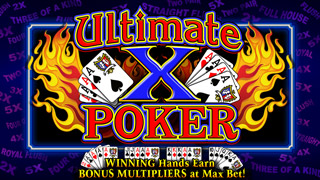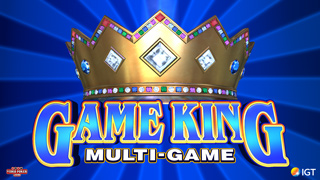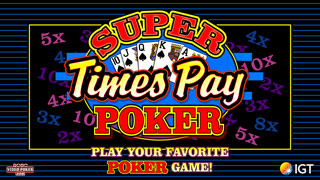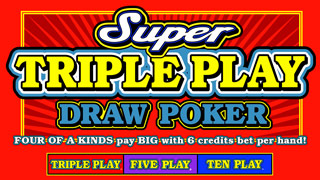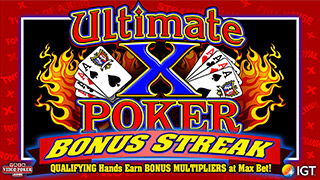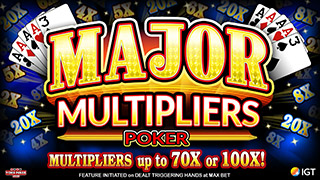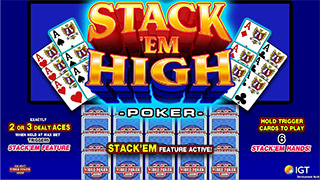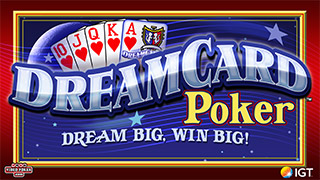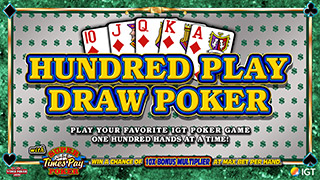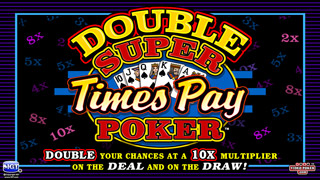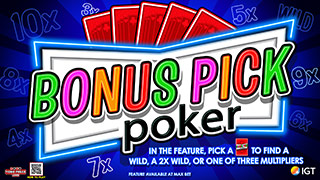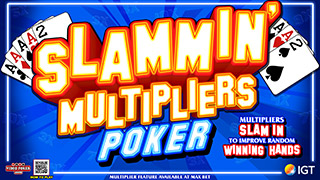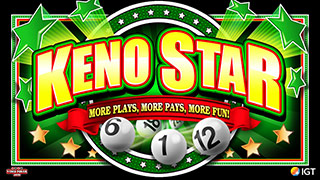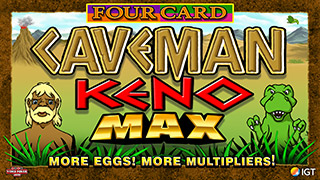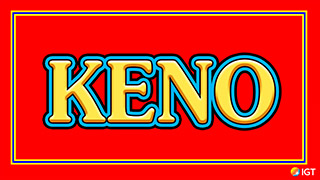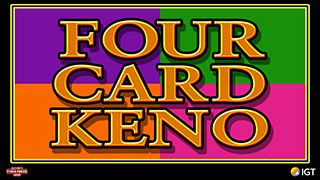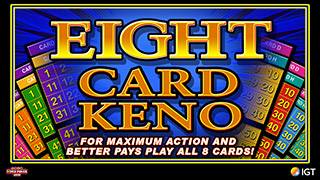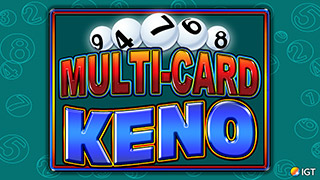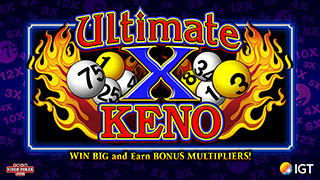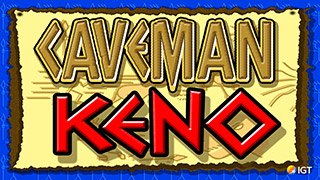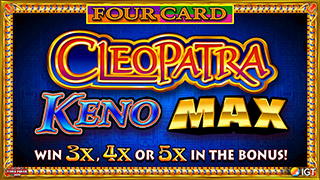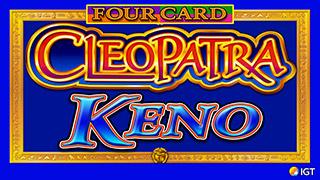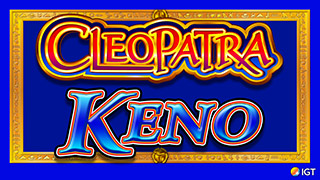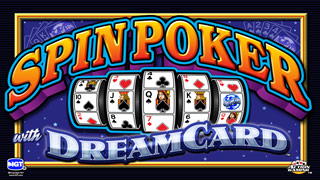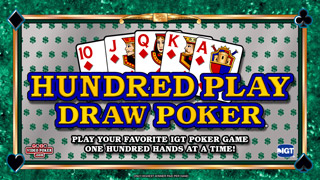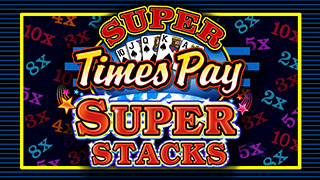class II or class III?
-
leakysqueaky
- Forum Rookie
- Posts: 33
- Joined: Sat Dec 30, 2006 6:34 pm
class II or class III?
Is there anyway to tell if a poker machine is classII or classIII "BEFORE" playing?
-
shadowman
- Video Poker Master
- Posts: 3587
- Joined: Mon Oct 23, 2006 5:42 pm
As far as I know class II machines have a secondary payout mechanism. However, the easiest way would be to name the casino and see what others have to say.
-
BillyJoe
- Video Poker Master
- Posts: 3198
- Joined: Sat Aug 23, 2008 2:00 pm
The Seminole Casino in Tampa used to have Class II slots and VP, which had a bingo game connected to them, displayed on the top of each machine. When you hit "Play" or "Deal", you received a bingo hand first, and then the regular game followed. The bingo game was linked to a group of machines, and continued until someone won.
This was in place before they were given permission to have Class III machines, which they now do. The theory was that you were really playing bingo , not a slot.
I believe that the Class II VP machines are set like a regular slot machine, as opposed to an RNG-type deal and draw. The reason I say that is that you could throw away a dealt Straight Flush (I had done it, just to prove it to myself), and it would reappear in a different suite on the draw. So the payouts, probably around 80%, were set as a slot.
This was in place before they were given permission to have Class III machines, which they now do. The theory was that you were really playing bingo , not a slot.
I believe that the Class II VP machines are set like a regular slot machine, as opposed to an RNG-type deal and draw. The reason I say that is that you could throw away a dealt Straight Flush (I had done it, just to prove it to myself), and it would reappear in a different suite on the draw. So the payouts, probably around 80%, were set as a slot.
-
leakysqueaky
- Forum Rookie
- Posts: 33
- Joined: Sat Dec 30, 2006 6:34 pm
It would be interesting to see if you were dealt A-A-A-A-2, and just kept a pair of aces and hit draw.
-
BillyJoe
- Video Poker Master
- Posts: 3198
- Joined: Sat Aug 23, 2008 2:00 pm
It would be interesting to see if you were dealt A-A-A-A-2, and just kept a pair of aces and hit draw.
True, that would be interesting. I would suspect, though, that the machine would never deal you a hand where it could not replicate the same payout after the draw. Either that, or it would just start smoking and squealing when you threw away the two Aces.
True, that would be interesting. I would suspect, though, that the machine would never deal you a hand where it could not replicate the same payout after the draw. Either that, or it would just start smoking and squealing when you threw away the two Aces.
-
New2vp
- Video Poker Master
- Posts: 1881
- Joined: Mon Sep 11, 2006 4:02 am
You can Google the Indian Gaming Regulatory Act of 1988 (sorry edog, as far as I can tell, that is its name) and read the
Wikipedia article. The definition of Class II and Class III machines
are derived from this act. If you have ever wondered, "What happened to
Class I?", that is explained there as well.
Given the deal and hold suggested by leakysqueaky, various mechanisms
can and are employed. One popular method that has been written about is
that a genie will appear and "magically" change the hand back to quad
aces with a kicker, so that the intended award would occur. Another method is that a secondary "subgame" like a bonus wheel could appear that will give credits. And here, if you were playing a DDB-like game, the bonus wheel would payoff big.Certainly,
these types of machines will prohibit the use of "special plays." For
example, if you were dealt KcQcJcQeQ`, and decided to "go for the royal" rather than drawing to the 3 queens, the machine could either give you trip jacks or trip kings; or, if it had been predetermined that you were to get quad queens, we would need a genie, bonus wheel, or some other device employed to get you you the bigger payoff.Generally most video poker players do not like Class II video poker. The reason many choose to play video poker is the idea that their hold strategy matters; but with Class II machines, that is not permitted. However, for a player who makes frequent mistakes, it could be argued that Class II could actually be better for them, though you won't likely find advantage plays with Class II machines. Plus those who know proper strategy will obviously get no advantage from that knowledge.Class II machines employ simulated bingo games between two or more machines to determine which machine will be the winner and what the prizes will be. Imagine a game of bingo where each machine that is activated in a given small time period is given a bingo card with an ensuing simulated drawing of bingo balls. One or more of the machines will get a game-ending bingo pattern and then a prize will be selected for the winning machine(s). This could be programmed in many ways; there could be a fixed list of prizes, with the prize coming off the "top" of a virtual list, which seems to be the most common method discussed.However, the different types of bingo patterns occur with given probabilities, and this allows a mathematical matching of bingo patterns to given prizes in just about any combination that a programmer can imagine. It is true that with Class II video poker there is no longer a requirement to match card probabilities, but certainly that as well as other probability-matching methods, including final hand probabilities, are not prohibited. And to the extent that casinos with Class II requirements are at least indirectly in competition with other alternative forms of entertainment, including casinos that are allowed Class III games in surrounding jurisdictions, it certainly is possible to program hit frequencies and prize distributions similar to or virtually equal to those of traditional slot machines or to video poker games, albeit, without allowing strategy to influence the numbers.
Wikipedia article. The definition of Class II and Class III machines
are derived from this act. If you have ever wondered, "What happened to
Class I?", that is explained there as well.
Given the deal and hold suggested by leakysqueaky, various mechanisms
can and are employed. One popular method that has been written about is
that a genie will appear and "magically" change the hand back to quad
aces with a kicker, so that the intended award would occur. Another method is that a secondary "subgame" like a bonus wheel could appear that will give credits. And here, if you were playing a DDB-like game, the bonus wheel would payoff big.Certainly,
these types of machines will prohibit the use of "special plays." For
example, if you were dealt KcQcJcQeQ`, and decided to "go for the royal" rather than drawing to the 3 queens, the machine could either give you trip jacks or trip kings; or, if it had been predetermined that you were to get quad queens, we would need a genie, bonus wheel, or some other device employed to get you you the bigger payoff.Generally most video poker players do not like Class II video poker. The reason many choose to play video poker is the idea that their hold strategy matters; but with Class II machines, that is not permitted. However, for a player who makes frequent mistakes, it could be argued that Class II could actually be better for them, though you won't likely find advantage plays with Class II machines. Plus those who know proper strategy will obviously get no advantage from that knowledge.Class II machines employ simulated bingo games between two or more machines to determine which machine will be the winner and what the prizes will be. Imagine a game of bingo where each machine that is activated in a given small time period is given a bingo card with an ensuing simulated drawing of bingo balls. One or more of the machines will get a game-ending bingo pattern and then a prize will be selected for the winning machine(s). This could be programmed in many ways; there could be a fixed list of prizes, with the prize coming off the "top" of a virtual list, which seems to be the most common method discussed.However, the different types of bingo patterns occur with given probabilities, and this allows a mathematical matching of bingo patterns to given prizes in just about any combination that a programmer can imagine. It is true that with Class II video poker there is no longer a requirement to match card probabilities, but certainly that as well as other probability-matching methods, including final hand probabilities, are not prohibited. And to the extent that casinos with Class II requirements are at least indirectly in competition with other alternative forms of entertainment, including casinos that are allowed Class III games in surrounding jurisdictions, it certainly is possible to program hit frequencies and prize distributions similar to or virtually equal to those of traditional slot machines or to video poker games, albeit, without allowing strategy to influence the numbers.
-
Eduardo
- Video Poker Master
- Posts: 2965
- Joined: Thu Aug 31, 2006 7:19 pm
It would be interesting to see if you were dealt A-A-A-A-2, and just kept a pair of aces and hit draw.
That's a great idea. I'll let YOU try it and tell me how it works out.
-
BillyJoe
- Video Poker Master
- Posts: 3198
- Joined: Sat Aug 23, 2008 2:00 pm
You can Google the Indian Gaming Regulatory Act of 1988 (sorry edog, as far as I can tell, that is its name) and read the Wikipedia article. The definition of Class II and Class III machines are derived from this act. If you have ever wondered, "What happened to Class I?", that is explained there as well.
Given the deal and hold suggested by leakysqueaky, various mechanisms can and are employed. One popular method that has been written about is that a genie will appear and "magically" change the hand back to quad aces with a kicker, so that the intended award would occur. Another method is that a secondary "subgame" like a bonus wheel could appear that will give credits. And here, if you were playing a DDB-like game, the bonus wheel would payoff big.
Certainly, these types of machines will prohibit the use of "special plays." For example, if you were dealt KcQcJcQeQ`, and decided to "go for the royal" rather than drawing to the 3 queens, the machine could either give you trip jacks or trip kings; or, if it had been predetermined that you were to get quad queens, we would need a genie, bonus wheel, or some other device employed to get you you the bigger payoff.
Generally most video poker players do not like Class II video poker. The reason many choose to play video poker is the idea that their hold strategy matters; but with Class II machines, that is not permitted. However, for a player who makes frequent mistakes, it could be argued that Class II could actually be better for them, though you won't likely find advantage plays with Class II machines. Plus those who know proper strategy will obviously get no advantage from that knowledge.
Class II machines employ simulated bingo games between two or more machines to determine which machine will be the winner and what the prizes will be. Imagine a game of bingo where each machine that is activated in a given small time period is given a bingo card with an ensuing simulated drawing of bingo balls. One or more of the machines will get a game-ending bingo pattern and then a prize will be selected for the winning machine(s). This could be programmed in many ways; there could be a fixed list of prizes, with the prize coming off the "top" of a virtual list, which seems to be the most common method discussed.
However, the different types of bingo patterns occur with given probabilities, and this allows a mathematical matching of bingo patterns to given prizes in just about any combination that a programmer can imagine. It is true that with Class II video poker there is no longer a requirement to match card probabilities, but certainly that as well as other probability-matching methods, including final hand probabilities, are not prohibited. And to the extent that casinos with Class II requirements are at least indirectly in competition with other alternative forms of entertainment, including casinos that are allowed Class III games in surrounding jurisdictions, it certainly is possible to program hit frequencies and prize distributions similar to or virtually equal to those of traditional slot machines or to video poker games, albeit, without allowing strategy to influence the numbers.
So THAT was what the Genie was for - a misplayed hand. I saw the Genie a few times on other peoples machines on the old Class II machines at Seminole, but I thought it was just a random thing. She did change cards to some kind of winning combination when she appeared.
Of course, I would never misplay a hand , so I never saw the Genie.
Given the deal and hold suggested by leakysqueaky, various mechanisms can and are employed. One popular method that has been written about is that a genie will appear and "magically" change the hand back to quad aces with a kicker, so that the intended award would occur. Another method is that a secondary "subgame" like a bonus wheel could appear that will give credits. And here, if you were playing a DDB-like game, the bonus wheel would payoff big.
Certainly, these types of machines will prohibit the use of "special plays." For example, if you were dealt KcQcJcQeQ`, and decided to "go for the royal" rather than drawing to the 3 queens, the machine could either give you trip jacks or trip kings; or, if it had been predetermined that you were to get quad queens, we would need a genie, bonus wheel, or some other device employed to get you you the bigger payoff.
Generally most video poker players do not like Class II video poker. The reason many choose to play video poker is the idea that their hold strategy matters; but with Class II machines, that is not permitted. However, for a player who makes frequent mistakes, it could be argued that Class II could actually be better for them, though you won't likely find advantage plays with Class II machines. Plus those who know proper strategy will obviously get no advantage from that knowledge.
Class II machines employ simulated bingo games between two or more machines to determine which machine will be the winner and what the prizes will be. Imagine a game of bingo where each machine that is activated in a given small time period is given a bingo card with an ensuing simulated drawing of bingo balls. One or more of the machines will get a game-ending bingo pattern and then a prize will be selected for the winning machine(s). This could be programmed in many ways; there could be a fixed list of prizes, with the prize coming off the "top" of a virtual list, which seems to be the most common method discussed.
However, the different types of bingo patterns occur with given probabilities, and this allows a mathematical matching of bingo patterns to given prizes in just about any combination that a programmer can imagine. It is true that with Class II video poker there is no longer a requirement to match card probabilities, but certainly that as well as other probability-matching methods, including final hand probabilities, are not prohibited. And to the extent that casinos with Class II requirements are at least indirectly in competition with other alternative forms of entertainment, including casinos that are allowed Class III games in surrounding jurisdictions, it certainly is possible to program hit frequencies and prize distributions similar to or virtually equal to those of traditional slot machines or to video poker games, albeit, without allowing strategy to influence the numbers.
So THAT was what the Genie was for - a misplayed hand. I saw the Genie a few times on other peoples machines on the old Class II machines at Seminole, but I thought it was just a random thing. She did change cards to some kind of winning combination when she appeared.
Of course, I would never misplay a hand , so I never saw the Genie.
-
Tomcat1569
- Senior Member
- Posts: 252
- Joined: Tue Feb 23, 2010 1:43 am
[QUOTE=New2vp]You can Google the Indian Gaming Regulatory Act of 1988 (sorry edog, as far as I can tell, that is its name) and read the Wikipedia article. The definition of Class II and Class III machines are derived from this act. If you have ever wondered, "What happened to Class I?", that is explained there as well.Given the deal and hold suggested by leakysqueaky, various mechanisms can and are employed. One popular method that has been written about is that a genie will appear and "magically" change the hand back to quad aces with a kicker, so that the intended award would occur. Another method is that a secondary "subgame" like a bonus wheel could appear that will give credits. And here, if you were playing a DDB-like game, the bonus wheel would payoff big.Certainly, these types of machines will prohibit the use of "special plays." For example, if you were dealt KcQcJcQeQ`, and decided to "go for the royal" rather than drawing to the 3 queens, the machine could either give you trip jacks or trip kings; or, if it had been predetermined that you were to get quad queens, we would need a genie, bonus wheel, or some other device employed to get you you the bigger payoff.Generally most video poker players do not like Class II video poker. The reason many choose to play video poker is the idea that their hold strategy matters; but with Class II machines, that is not permitted. However, for a player who makes frequent mistakes, it could be argued that Class II could actually be better for them, though you won't likely find advantage plays with Class II machines. Plus those who know proper strategy will obviously get no advantage from that knowledge.Class II machines employ simulated bingo games between two or more machines to determine which machine will be the winner and what the prizes will be. Imagine a game of bingo where each machine that is activated in a given small time period is given a bingo card with an ensuing simulated drawing of bingo balls. One or more of the machines will get a game-ending bingo pattern and then a prize will be selected for the winning machine(s). This could be programmed in many ways; there could be a fixed list of prizes, with the prize coming off the "top" of a virtual list, which seems to be the most common method discussed.However, the different types of bingo patterns occur with given probabilities, and this allows a mathematical matching of bingo patterns to given prizes in just about any combination that a programmer can imagine. It is true that with Class II video poker there is no longer a requirement to match card probabilities, but certainly that as well as other probability-matching methods, including final hand probabilities, are not prohibited. And to the extent that casinos with Class II requirements are at least indirectly in competition with other alternative forms of entertainment, including casinos that are allowed Class III games in surrounding jurisdictions, it certainly is possible to program hit frequencies and prize distributions similar to or virtually equal to those of traditional slot machines or to video poker games, albeit, without allowing strategy to influence the numbers.
So THAT was what the Genie was for - a misplayed hand. I saw the Genie a few times on other peoples machines on the old Class II machines at Seminole, but I thought it was just a random thing. She did change cards to some kind of winning combination when she appeared.
Of course, I would never misplay a hand , so I never saw the Genie. [/QUOTE]
That's interesting, Billyjoe. I was up at Empire City playing their Class II machines on Sunday and didn't see the genie once in over two hours of play ... so I guess I know what I'm doing! I did manage to hit a 300-coin straight flush on an inside draw as well as several 4oaks that day, and managed to get back most of my December losses there from just $50 in free play
-
leakysqueaky
- Forum Rookie
- Posts: 33
- Joined: Sat Dec 30, 2006 6:34 pm
You would see my best chicken imititation (bawk, bawk).........I'd hit that hold button faster than you could blink!!



